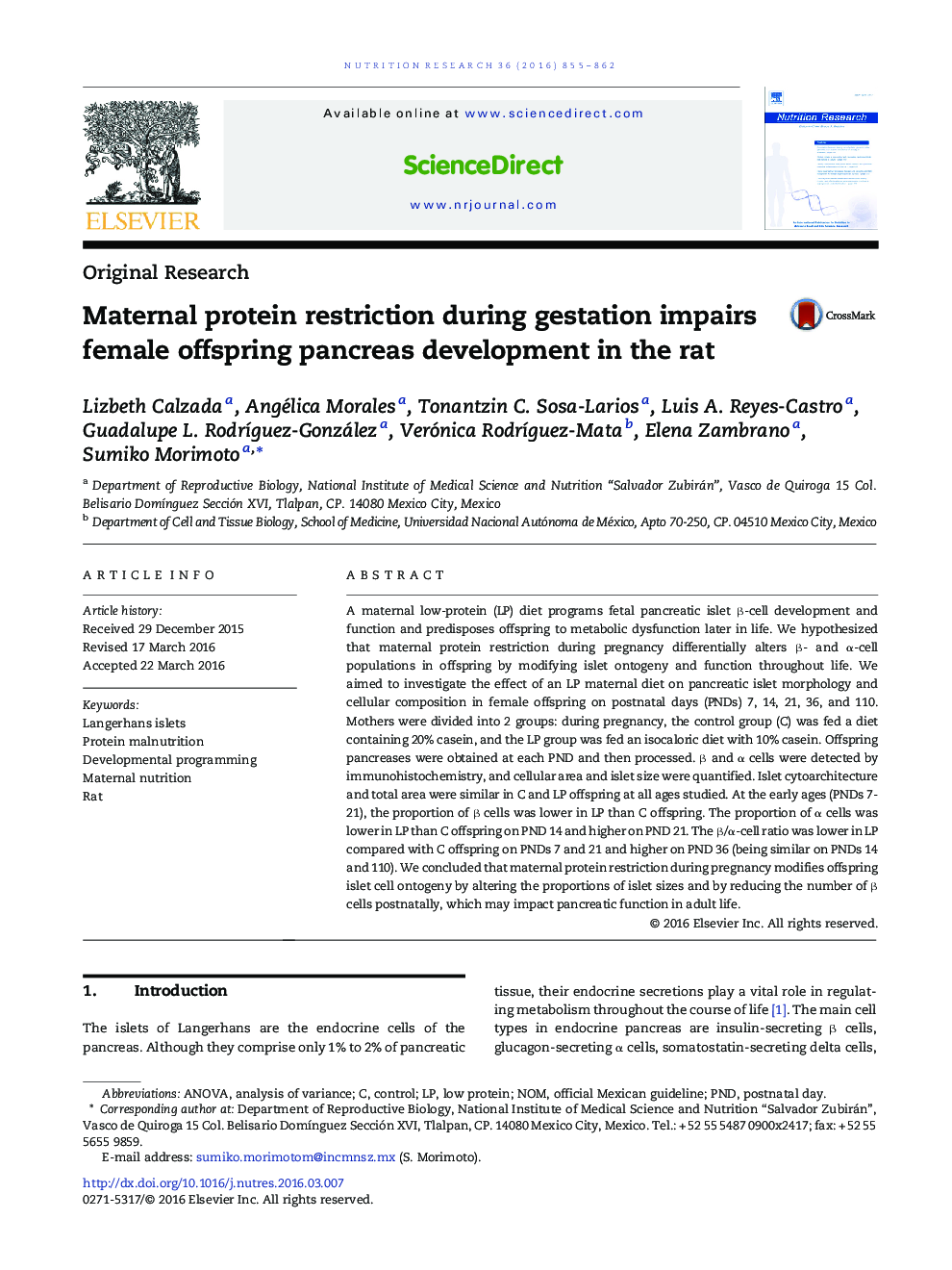| Article ID | Journal | Published Year | Pages | File Type |
|---|---|---|---|---|
| 2808821 | Nutrition Research | 2016 | 8 Pages |
A maternal low-protein (LP) diet programs fetal pancreatic islet β-cell development and function and predisposes offspring to metabolic dysfunction later in life. We hypothesized that maternal protein restriction during pregnancy differentially alters β- and α-cell populations in offspring by modifying islet ontogeny and function throughout life. We aimed to investigate the effect of an LP maternal diet on pancreatic islet morphology and cellular composition in female offspring on postnatal days (PNDs) 7, 14, 21, 36, and 110. Mothers were divided into 2 groups: during pregnancy, the control group (C) was fed a diet containing 20% casein, and the LP group was fed an isocaloric diet with 10% casein. Offspring pancreases were obtained at each PND and then processed. β and α cells were detected by immunohistochemistry, and cellular area and islet size were quantified. Islet cytoarchitecture and total area were similar in C and LP offspring at all ages studied. At the early ages (PNDs 7-21), the proportion of β cells was lower in LP than C offspring. The proportion of α cells was lower in LP than C offspring on PND 14 and higher on PND 21. The β/α-cell ratio was lower in LP compared with C offspring on PNDs 7 and 21 and higher on PND 36 (being similar on PNDs 14 and 110). We concluded that maternal protein restriction during pregnancy modifies offspring islet cell ontogeny by altering the proportions of islet sizes and by reducing the number of β cells postnatally, which may impact pancreatic function in adult life.
